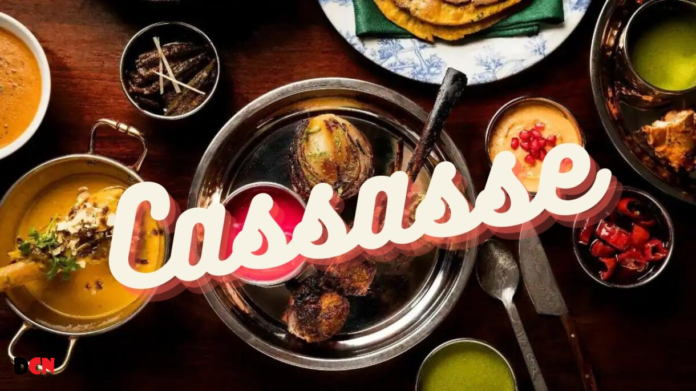Introduction
Cassasse – a term that resonates with mystery, culture, and a hint of nostalgia. This enigmatic word holds within it a myriad of stories, traditions, and a rich tapestry of cultural significance. In this article, we embark on a journey to unravel the mysteries surrounding Cassasse, delving into its origins, its diverse interpretations, and its enduring impact on various cultures.
Unveiling the Origins
The origins of Cassasse are deeply rooted in history, spanning across different regions and cultures. While its exact etymology remains elusive, Cassasse is believed to have originated from the fusion of various linguistic influences. Some trace its roots back to African languages, particularly in regions where Creole languages evolved. Others suggest connections to indigenous languages of the Caribbean or even European influences brought by colonialism.
Cassasse: A Culinary Delight
One of the most intriguing aspects of Cassasse lies in its culinary significance. In many cultures, Cassasse refers to a traditional dish, often prepared using a unique blend of ingredients and cooking techniques. From the Caribbean islands to parts of Africa and beyond, Cassasse manifests in diverse culinary forms, each with its own distinct flavors and methods of preparation.
Exploring Cultural Significance
Beyond its culinary realm, Cassasse holds deep cultural significance in various communities. It serves as more than just a dish; it is a symbol of tradition, heritage, and community identity. In some cultures, the preparation of Cassasse is accompanied by rituals and ceremonies, signifying its importance in social gatherings and celebrations. Its consumption often fosters a sense of belonging and nostalgia, connecting individuals to their roots and shared history.
Interpretations and Variations
The beauty of Cassasse lies in its versatility and adaptability. Across different regions and cultures, Cassasse takes on various interpretations and variations, reflecting the unique characteristics of each community. From savory stews to sweet delicacies, Cassasse evolves with the local ingredients, culinary techniques, and cultural influences, resulting in a diverse tapestry of flavors and textures.
Cassasse in Literature and Art
The allure of Cassasse extends beyond the realm of cuisine, making its mark in literature, art, and popular culture. Writers, poets, and artists often draw inspiration from Cassasse, using it as a metaphor for cultural identity, resilience, and the complexities of human experience. Whether depicted in paintings, novels, or songs, Cassasse serves as a symbol of cultural heritage and the enduring spirit of community.
Preserving Traditions: The Role of Cassasse
In an ever-changing world, the preservation of cultural traditions becomes paramount. Cassasse plays a vital role in this endeavor, serving as a link between the past and the present, preserving ancestral knowledge and culinary techniques for future generations. Through the continued practice of preparing and sharing Cassasse, communities uphold their traditions, ensuring that their cultural heritage remains vibrant and alive.
Challenges and Revival Efforts
Despite its deep-rooted significance, Cassasse faces challenges in the modern era. Rapid urbanization, globalization, and changing dietary preferences pose threats to traditional culinary practices, including the art of preparing Cassasse. However, efforts to revive and promote traditional cuisine are underway, driven by a growing appreciation for cultural diversity and a desire to preserve intangible heritage. Initiatives such as culinary workshops, cultural festivals, and gastronomic tourism contribute to the revitalization of Cassasse and other traditional dishes, ensuring that they continue to thrive in the contemporary world.
Conclusion: Embracing the Legacy of Cassasse
Cassasse stands as a testament to the resilience of cultural traditions, weaving together stories of the past and aspirations for the future. Its origins shrouded in mystery, its flavors bursting with complexity, Cassasse embodies the essence of cultural identity and shared heritage. As we savor its taste, celebrate its rituals, and cherish its significance, we honor the legacy of Cassasse, ensuring that its legacy endures for generations to come.
